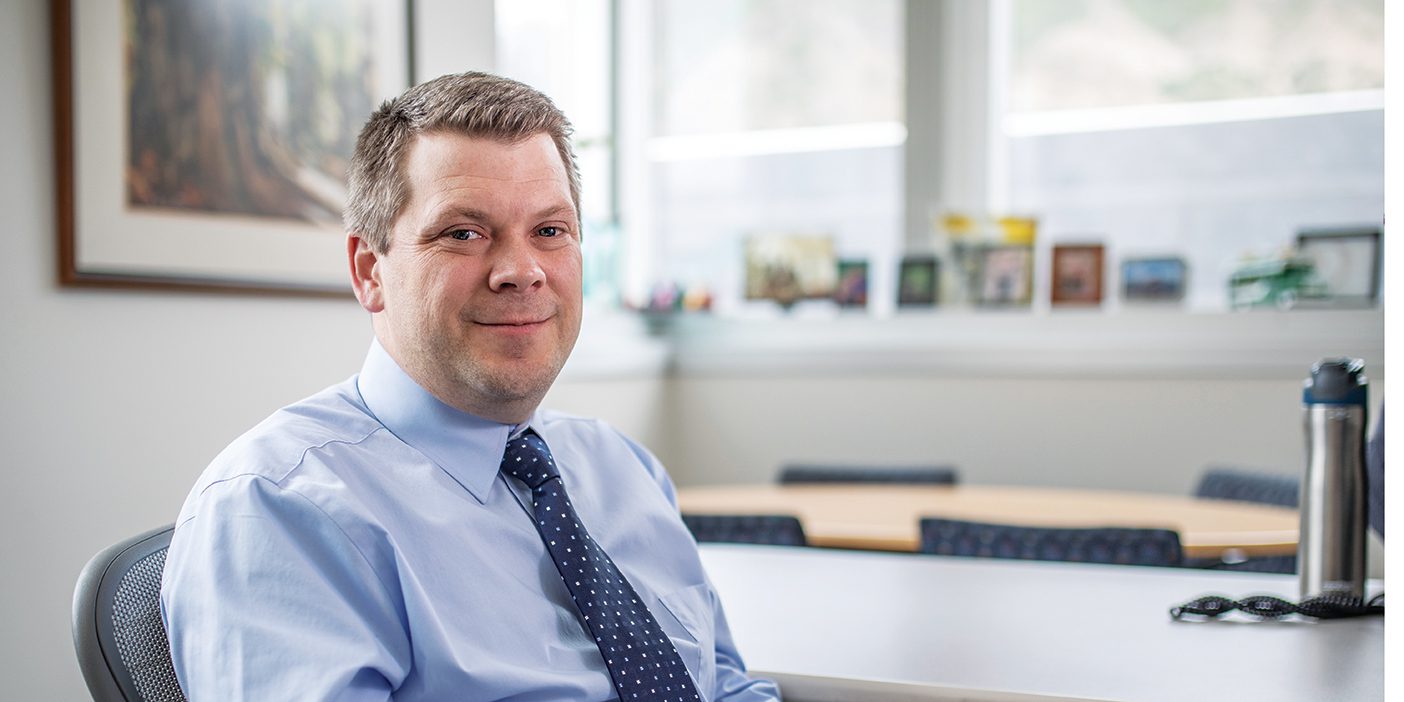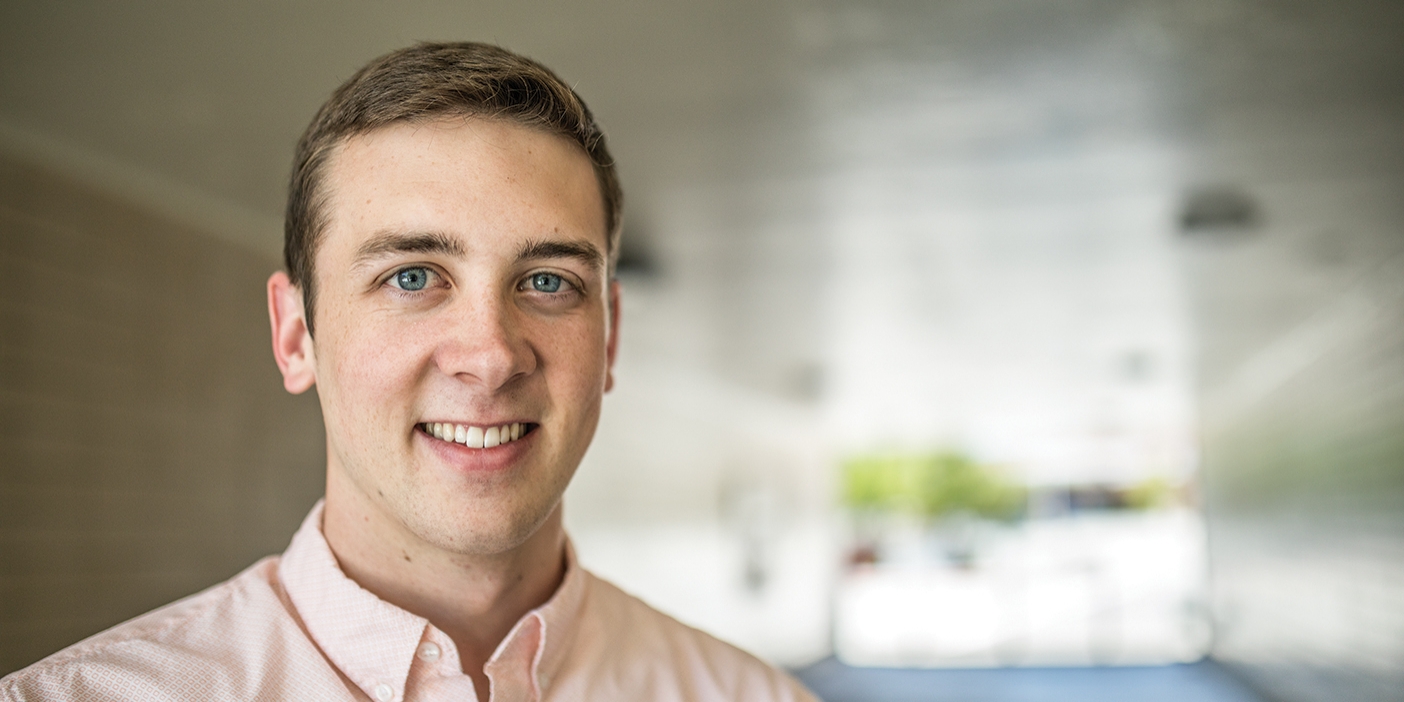The director of BYU’s Honor Code Office addresses common questions.

“We love it when students come in and ask questions,” says Kevin Utt, director of the BYU Honor Code Office (HCO). And students have been coming in. Utt met with more than 200—mostly one or two at a time—just in April.
The flood came after an Instagram account began posting anonymous stories critical of past interactions with the office, which is tasked with ensuring that students live by BYU standards.
“The timing honestly worked pretty well,” says Utt. Having previously worked as a dean of students and with student-conduct offices at several Midwestern universities, Utt was named HCO director in January. His first assignment: examine the HCO top to bottom and recommend ways to better align its systems, processes, and training with Association for Student Conduct Administration guidelines and best practices at other schools.
While nearly all schools have a student code of conduct, Utt calls BYU’s Honor Code unique “in that people really think about it, really feel that [it] is part of the experience here.”
Since January he’d been conducting surveys, meeting with student groups, and visiting classes to improve the HCO. “The student input was already coming,” he says. “We just now had a new group.”
And a vocal one. Concerned students, alumni, and others organized a protest on campus in April, mainly to focus on disciplinary procedures, rather than the code of conduct itself, which the HCO has no role in determining.
“Some of the changes people are wanting were already in place.” —Kevin Utt
“Some of the changes people are wanting were already in place,” Utt says, while others reflect misconceptions. Others still are actively being addressed.
One frequently mentioned worry: that a student could be called into the HCO based on an anonymous report. The HCO’s longstanding policy is to ignore anonymous reports unless there’s a legitimate safety risk. Like other universities, BYU follows a due process, allowing a student to know the reported violation and who made the accusation, to respond, and to provide evidence. And the student is presumed innocent until the “preponderance of evidence” standard has been met.
Utt has worked with the office to make these steps and procedures clearer for students, spelling out what they can expect, how evidence is gathered, and potential outcomes.
Critics also say the HCO creates a culture of “snitching.” The Honor Code says students should encourage their peers to abide by BYU standards; that doesn’t mean turning someone in, says Utt. Rather, “we expect them to help their friend and fellow classmate do well and be better.” He notes that there is neither requirement for students to report violations nor sanction for those who don’t. In May the HCO updated language in the off-campus housing contracts to further clarify this point.
Several concerns relate to the roles of the HCO and ecclesiastical leaders. Although Utt acknowledges that it can be helpful to coordinate efforts with a bishop, this coordination happens only after the student signs a waiver. Bishops receive regular training that such information must not otherwise be shared.
Some have questioned why certain violations are not just handled by the bishop. Utt notes that it’s not unusual for different communities to have different and parallel processes for addressing misbehavior, such as in the legal realm. You couldn’t “rob a grocery store and then go up to the judge and say, ‘Look, I’m working with my bishop, so I’m good.’” Depending on the infraction, a student might need to engage in HCO, ecclesiastical, legal, and even familial processes at the same time.
“It will feel like a new experience, or at least a refocused experience.” —Kevin Utt
BYU is ultimately responsible for enforcing its policies, says Utt. “Accrediting bodies, case law, and [student-conduct] standards all say that if it’s in your code of conduct, universities must address those behaviors.”
And Utt notes that the focus is different: bishops deal with worthiness, repentance, and forgiveness, while the HCO helps students realign with BYU’s mission and behavioral policies.
Nearly 80 percent of the students who come to the HCO receive what Utt calls a simple “one-and-done” reminder of and recommitment to policy. For more serious infractions, the HCO typically gives certain assignments—such as devotional attendance, community service, and journaling—all intended to help the students reflect and renew their commitment to BYU’s mission. “We don’t make them go above and beyond what a [typical] BYU student does,” says Utt. “We just make the good things required for a few months.”
Between 10 and 15 students are expelled each year, says Utt, but nearly all others successfully complete the HCO process and return to good standing with BYU. “We want them to come out of here and say, ‘That was positive for me. My outlook has changed of how I can engage in my BYU experience.’”
A newcomer to campus, Utt calls BYU remarkable. “This is the only school I . . . am aware of where students come in and report themselves for violations. I think about the courage that takes. They think they’re going to be expelled—they never are, but they think they’re going to be—but they come in anyway. It shows [their] integrity.”
Utt acknowledges that having to account for an Honor Code violation is a painful, frightening experience for students. He believes the office’s efforts to update everything from its policy wording to its website and tracking software to training protocols for counselors will help make the process more transparent and navigable. “It will feel like a new experience,” says Utt, “or at least a refocused experience.”
More: See Utt’s letter to students regarding HCO updates and learn about additional improvements.











